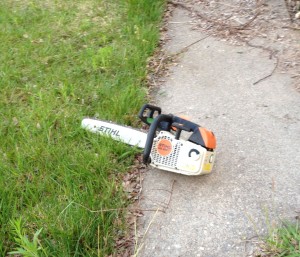Landowner Liability for Workers’ Injuries (Part 2)
IN SOME CASES, LAND OWNERS MAY BE LIABLE FOR INJURIES TO CONTRACTORS’ EMPLOYEES
Although the “general rule” provides for a lack of landowner liability following an injury to a contractor’s employee, the many exceptions make this particular rule far less effective than many others which protect the owners of land. As we discussed earlier this week, the most frequently used (and upheld) exceptions to this rule include:
1. The work is “inherently dangerous.”
2. The land owner provides defective equipment or fails to warn the workers (or contractor) of a pre-existing hazardous condition.
3. The land owner has a “nondelegable duty” toward third parties.
4. The land owner retains control of the work (essentially, fulfilling the contractor’s role).
The previous post addressed the issue of property owner control of the work, so now it’s time to take a look at the other major exceptions to the rule.
INHERENTLY DANGEROUS WORK
Where a contractor is hired to perform a job which carries an inherent risk of injury, due to the nature of the work or the location where the work is performed, a reasonable property owner may have a duty to take (or ensure that workers take) special precautions to lessen the risk of injury. Where the land owner fails to take reasonable steps to mitigate the risk of harm, and injury subsequently occurs, the land owner may have breached a duty to the injured party.
Note: this doctrine may not apply to injured workers, especially employees of the contractor, because the workers presumably already have a better remedy, in the form of workers’ compensation. Consult a workers’ compensation attorney promptly if you (or your employees or contractors) are injured on the job.
LAND OWNERS MUST BE CAREFUL WHEN PROVIDING CONTRACTORS WITH EQUIPMENT
If the property owner provides the contractor with tools or equipment, and those tools or equipment prove to be defective (or unreasonably hazardous), the property owner may have liability for resulting injuries.
CONCEALED PRE-EXISTING HAZARDS MAY CREATE LIABILITY FOR THE PROPERTY OWNER
Property owners must warn contractors of known pre-existing hazards, and mitigate those hazards when reasonably possible.
Property owners may have liability for injuries resulting from pre-existing concealed hazards when the following requirements are met:
1. The property owner knew (or should have known) about the hazard.
2. The property owner did not warn the contractor about the dangerous condition.
3. The contractor did not know about the hazard, and could not reasonably have been expected to discover it (in time to prevent the injury).
SOMETIMES, THE PROPERTY OWNER HAS A “NON-DELEGABLE DUTY”
The law recognizes a number of “non-delegable duties” which the property owner cannot avoid or transfer by hiring a contractor. If injuries result from the property owner’s failure to comply with one (or more) of these non-delegable duties, the property owner may have legal liability for damages to the injured party.
The most common of these non-delegable duties are:
1. Duties established by applicable laws, regulations, and ordinances. Where the law imposes a duty on a specific person, that person may not be able to transfer the duty (or related obligations) to someone else.
2. The Duty to maintain premises in a reasonably safe condition. Property owners, and those in control of land, have a general (and generally non-delegable) duty to repair or mitigate hazards, to provide proper warnings, and to maintain and repair property so that premises remain in reasonably safe condition.
***
DISCLAIMER: This article is intended for informational purposes only, does not constitute legal advice to any person or entity, and does not create an attorney-client relationship with any person or entity. Premises liability is a complex legal topic, and no single article can provide complete or comprehensive coverage or information about this or any other legal topic or issue. Your personal liability may differ, based on your individual facts and circumstances. If you believe you have a legal claim or issue, or wish to know more about your individual rights, consult an experienced attorney without delay.
















